Alaphilippe: I made a good move at a good moment and, voila, I won Strade Bianche
Frenchman reveals how Tuscan race became a new goal after winter of reflection
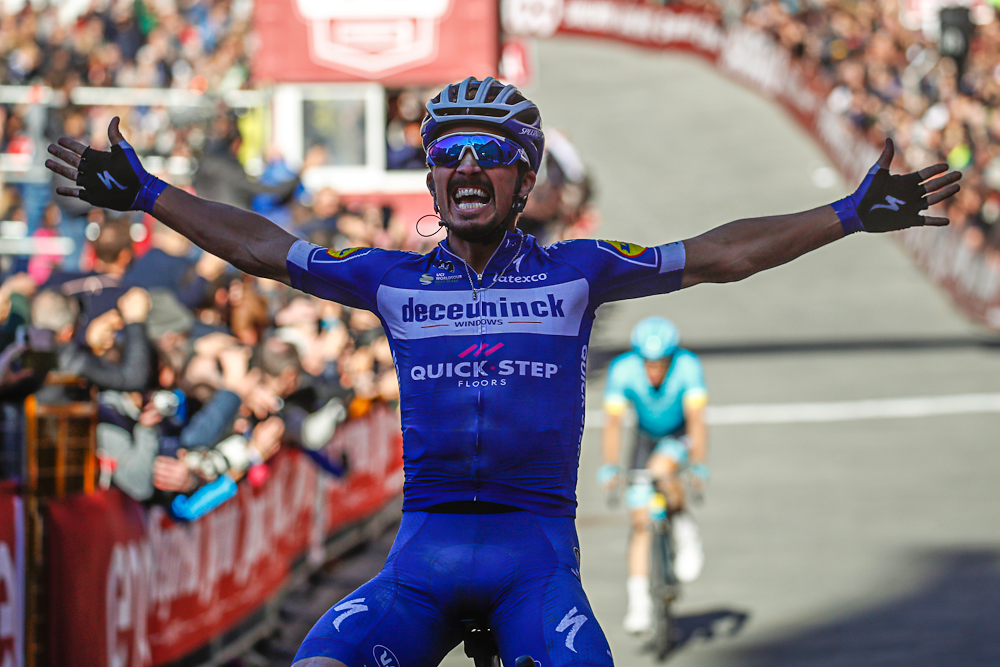
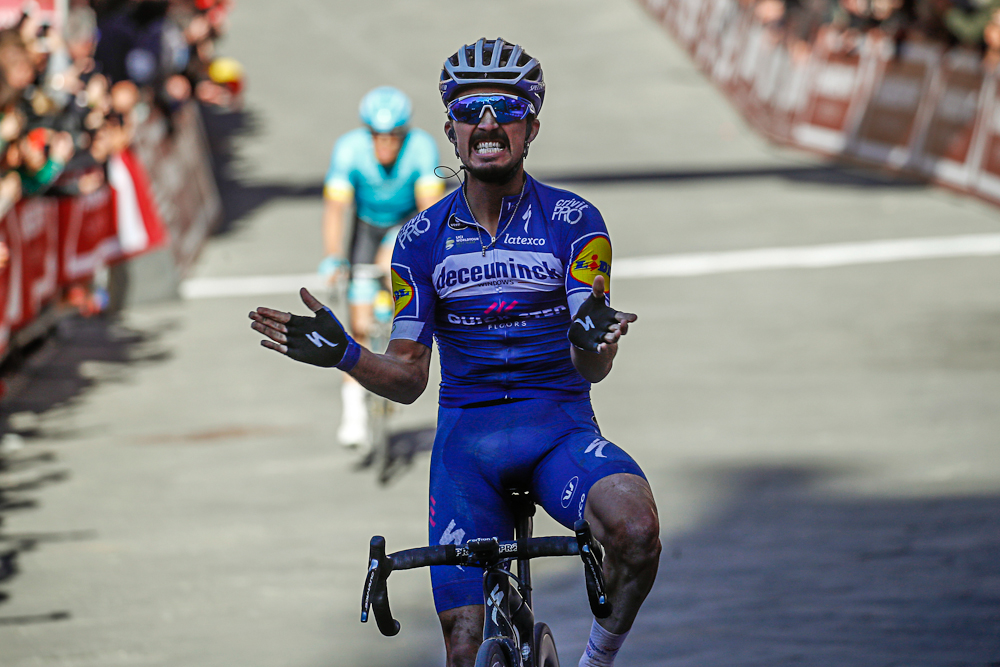
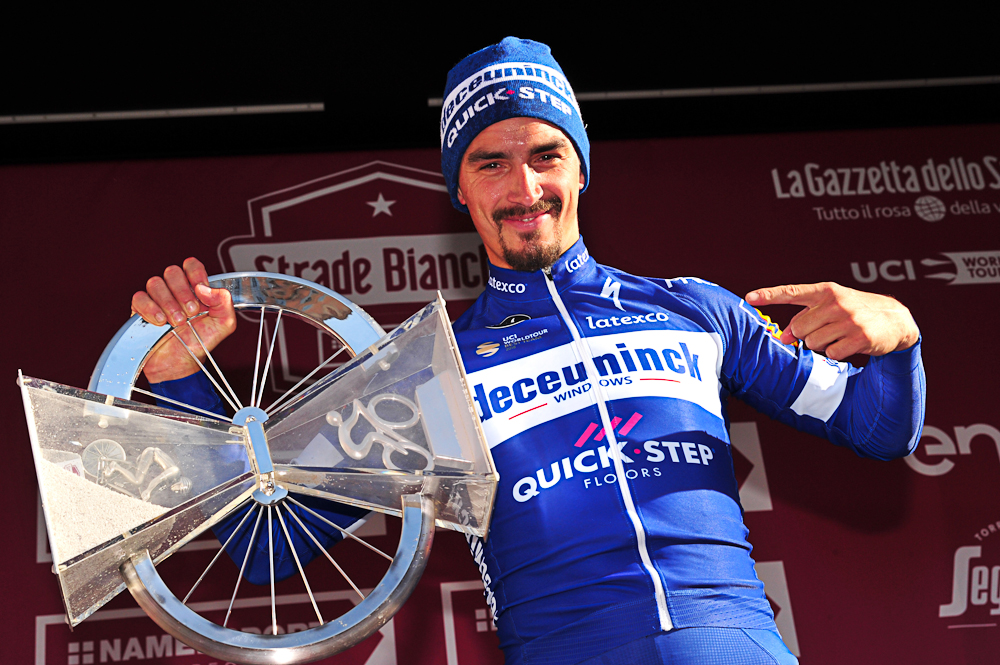
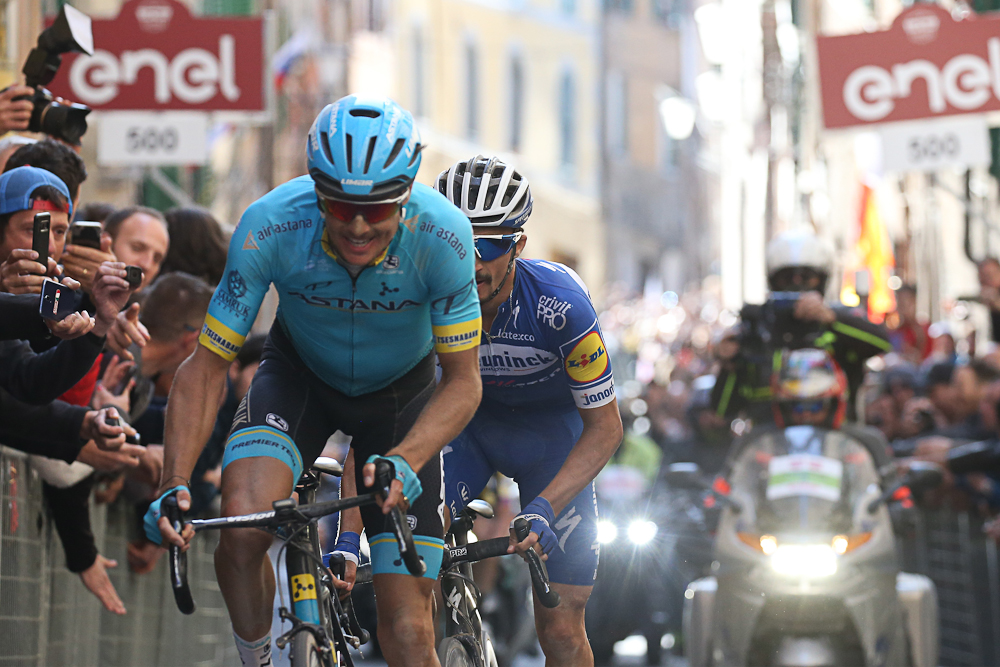
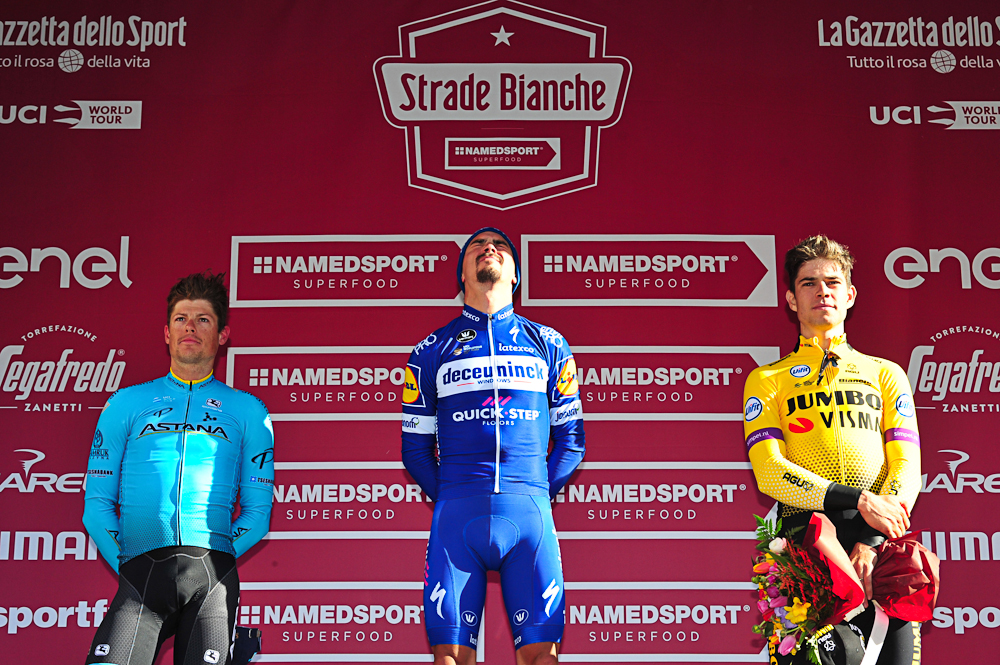
Julian Alaphilippe rode his dust-covered bike into the Strade Bianche post-race press conference on the third floor of a building overlooking the Piazza del Campo in Siena, buzzing with joy and satisfaction after winning the new Italian Classic on his debut on the dirt roads of Tuscany.
The Frenchman and his Deceuninck-QuickStep team rode a perfect race, and he out-manoeuvred Jakob Fuglsang (Astana) over the top of the steep Via Santa Caterina climb to the centre of Siena, riding down into the crowd-packed Piazza del Campo to win as if he had just won the Palio horserace that also finishes in the spectacular central square.
"I'm just so happy. It was my first big goal of the season," he explained. "Even if the start of the season was good already, to win Strade Bianche is incredible. I made no mistakes."
Alaphilippe is now 26 and maturing year-on-year. In 2018 he had a breakthrough season, winning La Flèche Wallonne, two stages at the Tour de France and the polka-dot climber’s jersey, the Clásica San Sebastian, and the Tour of Britain. However, he came up short at the World Championships in Innsbruck, cracking on the final steep climb after being France’s protected team leader ahead of Thibaut Pinot and Romain Bardet.
Alaphilippe needed a long winter of reflection to recover mentally from the huge disappointment. He and Deceuninck-QuickStep set some new goals for the spring to find new motivation, identifying Strade Bianche and Milan-San Remo as two appetising and achievable targets. Alaphilippe raced the Vuelta a San Juan and the Colombia 2.1 race in February - winning two stages at the former and one at the latter - specifically to peak for these two weeks in March.
He could also dominate the many steep finishes at next week’s Tirreno-Adriatico.
"I see things differently after last year and the winter. I’ve had time to reflect on my career," Alaphilippe explained, as profound as he is a joker.
Get The Leadout Newsletter
The latest race content, interviews, features, reviews and expert buying guides, direct to your inbox!
"This race was a very important goal. My season is not only about La Flèche Wallonne and the Tour de France. I needed something new," he said.
"I’d heard all the guys talk about Strade Bianche and I knew it suited me, and so I worked hard for this. I was happy to arrive in Siena on the form I wanted. I was a favourite and my name was everywhere, but I’d never won or even ridden the race. But I’m used to pressure now. We took on our responsibility in the race and so did I. I didn’t make any errors, and so it’s huge satisfying to win the way we did."
A battle with Fuglsang
Alaphilippe and Fuglsang were locked in a physical and physiological battle for the last 20km of the race after distancing Wout Van Aert (Jumbo-Visma) on the penultimate sector of dirt roads. He got back on but, on the steep Santa Caterina climb to the centre of Siena, Alaphilippe matched Fuglsang’s surges and then jumped past him over the top of the climb and powered to the finish.
"When someone attacked, I’m not sure if it was Fuglsang or van Aert, but when they went, I closed straight away," Alaphilippe said, reflecting on his race.
"It was a good move and the legs talked. They eased up behind but we worked together straight away. On the last sector I felt my legs were heavy because it was hard day out and Fuglsang seemed fresher than me. But I raced with my head and it worked out. I made Fuglsang understand that we had to ride together to the finish and he knew that if he attacked me, I wouldn’t have worked any more. I had to race smart, and to win I knew I had get to Santa Caterina ahead. I did that.
"I’ve got zero experience of this race, but I spoke to Stybar, who knows it well. He told me the secret is to be well placed and stay focused. Strade Bianche is not only about the climb and dirt sectors; something can happen any time. I was also lucky not to crash or flat, and the team was strong. Yves Lampaert was really important, then in the finale, we had Stybar too, and so it was perfect for Deceuninck-QuickStep. I made a good move at a good moment and, voila, I won."

Stephen is one of the most experienced member of the Cyclingnews team, having reported on professional cycling since 1994. He has been Head of News at Cyclingnews since 2022, before which he held the position of European editor since 2012 and previously worked for Reuters, Shift Active Media, and CyclingWeekly, among other publications.